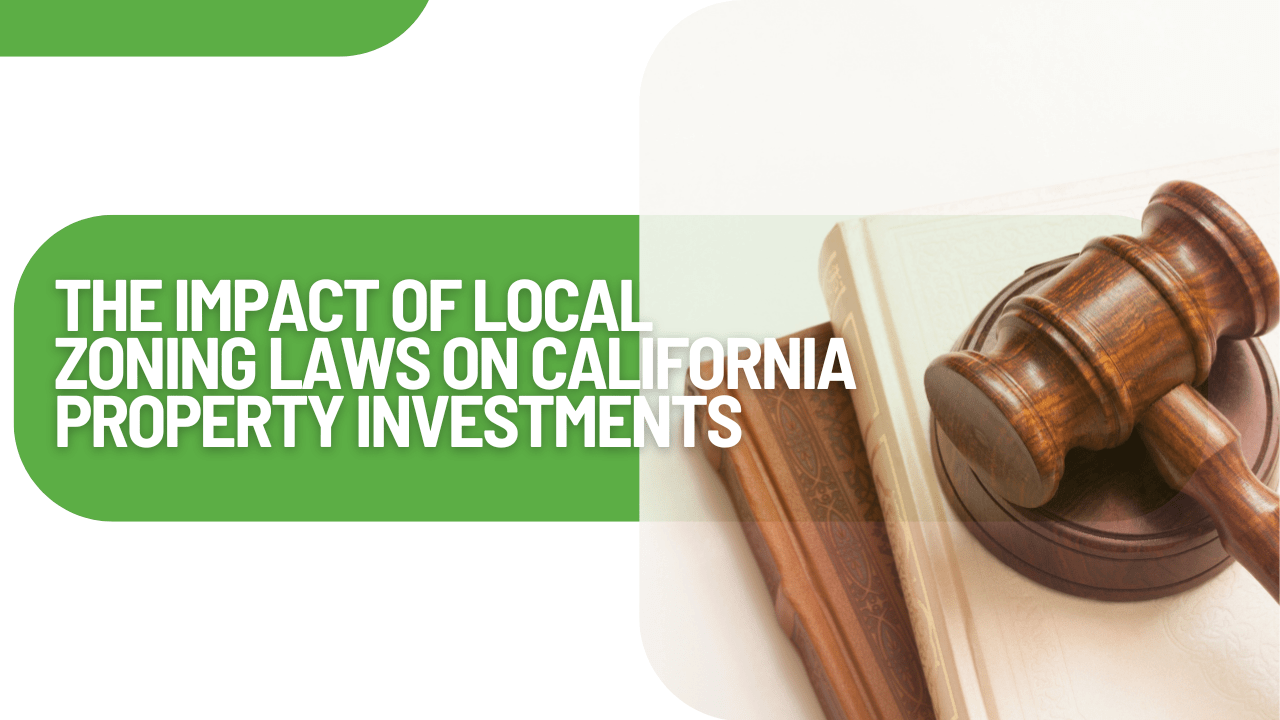Zoning considerations are perhaps not the sexiest part of investing in real estate.
Do you really even think about them much, until you have to?
Probably not. And that has landed more than one real estate investor into some surprising trouble. You don’t want to find yourself investing in an area that doesn’t allow rental homes like yours. That would significantly reduce your profitability.
In California City, CA, these zoning regulations can significantly impact property values, investment opportunities, and the overall return on investment. So, we decided to do our current investors and potential new real estate investors a favor by taking a deep dive into what the zoning laws are and how you can best work around them. We'll explore the specific zoning laws in California City and how they affect property investments
Zoning 101: What are These Laws and Their Purpose?
Zoning laws are regulations set by local governments that determine how land can be used in specific areas. These laws can dictate everything from the type of buildings that can be constructed (commercial, residential, industrial) to the specific activities that can take place on a property (such as operating a business).
For real estate investors, understanding zoning laws is an important part of making investment decisions. They can directly impact property values, potential uses for the property, and the likelihood of future development in the area. You will want to know what the zoning laws permit and restrict before you make an investment. New laws around short-term rental properties are also going to be relevant when we’re talking about zoning. If you’re investing with the idea that you’ll rent out vacation properties or short-term leases, make sure they’re allowed. If you’re buying in an HOA neighborhood, you’ll want to make sure rentals are allowed and that certain limits have not been met yet.
There’s a lot to think about, and a California City property manager can help protect your investment and monitor any changes in zoning regulations and laws.
Current Zoning Laws in California City
California City has a variety of zoning classifications, each with its own set of regulations. We are going to take a close look at some of the main classifications, which include:
- Residential Zones (R1, R2, R)
These zones are designated for different types of housing. The R1 zone, for example, typically allows for single-family homes, while R2 and R3 may allow for duplexes or multi-family units. Understanding the specifics of these classifications is important for investors looking to develop residential properties.
- Commercial Zones (C1, C2)
Commercial zones are designated for businesses. C1 zones typically allow for retail shops, while C2 zones may allow for more diverse commercial activities. Investors interested in commercial real estate should familiarize themselves with these classifications and their associated regulations.
- Industrial Zones (M1, M2)
These zones are designated for industrial activities. M1 zones might allow for light industrial operations, while M2 zones may permit heavier industrial uses. For investors considering industrial properties, understanding these classifications and their regulations is essential.
Mixed-use zones allow for a combination of residential and commercial properties. These zones are becoming increasingly popular in urban areas, as they promote a live-work-play environment. Investors should pay particular attention to the regulations surrounding these zones, as they can offer unique opportunities for development.
Agricultural zones are designated for farming and related activities. While these zones may not be the primary focus for many real estate investors, understanding their regulations can be important for those interested in agricultural properties or rural development.
- Open Space and Recreation Zones (OS)
These zones are set aside for parks, recreational facilities, and conservation areas. While they may not directly impact property investment, they play a crucial role in determining the overall character and livability of the community.
Agricultural zones are designated for farming and related activities. While these zones may not be the primary focus for many real estate investors, understanding their regulations can be important for those interested in agricultural properties or rural development.
How Zoning Laws Affect Property Investments
Zoning laws can impact property investments in several ways:
Changes in zoning laws can lead to changes in property values.
For example, if a previously residential-only area is re-zoned for commercial use, property values may increase significantly. Conversely, if a commercial area is re-zoned for residential use, property values might decrease.
Zoning laws can create or limit investment opportunities.
For instance, if a local government decides to promote mixed-use developments, investors may find new opportunities to invest in properties that cater to both residential and commercial needs.
Zoning laws outline what can be built on a property and how it can be used. If the zoning laws are restrictive, they can limit the potential for property development, which can impact the overall return on investment for real estate investors.
Investors must also consider the costs associated with compliance with zoning laws. If a property requires modifications to meet zoning requirements, these costs can add up quickly and impact the overall profitability of the investment.
Future Trends in Zoning Laws







